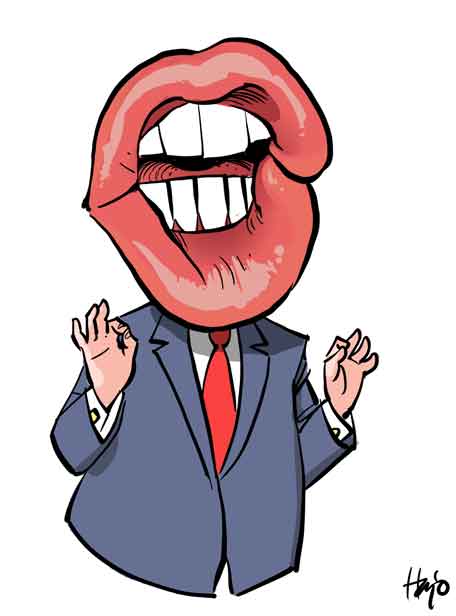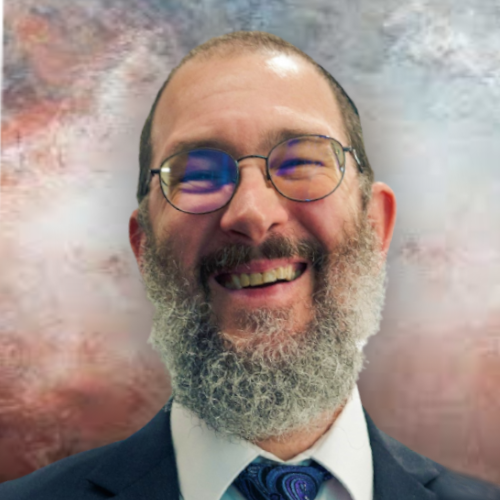
"Oh, the games people play now,
Every night and every day now,
Never meaning what they say now,
Never saying what they mean."
Joe South's iconic lyrics from 1968 echo like a critique of the political commentary we've come to expect on cable news and the web. Instead of promoting constructive disagreement and civil discourse, purported "dialogue" takes the form of combative ideology and weaponized polemics, seemingly with the sole motivation of beating adversaries into total submission.
It's not so much that self-styled experts don't say what they mean, or even that they're mean about what they say. Indeed, their passion and zealotry mark them as true believers, uncompromising and unshakable in their opinions and perspectives.
The problem is that so much of what they say contains so little meaning. With few exceptions, media experts don't respond to arguments from the other side; they summarily dismiss opposing views while asserting their own intellectual and moral superiority. Having convinced themselves of the truth as they see it, no counterargument will ever dissuade them from steadfast conviction, irrespective of facts or logic.
And that's ironic, considering the descriptor we've come to attach to their style of commentary, which is our current entry into the Ethical Lexicon:
Punditry (pun*dit*ry/ puhn-di-tree) | noun
The expression of expertise in a particular subject or field.
The word pundit derives from the Hindi pandit, a title bestowed in recognition of exceptional wisdom or scholarship. The term entered English vocabulary in colonial India, when the British enlisted locals to survey territories beyond the frontier.
Midway through the 19th century, Britain sought to expand its empire north from its Indian colony. At the same time, Russia was seeking expansion into the same region eastward from Crimea. The ensuing competition for influence in Asia became known — thanks to Rudyard Kipling — as the Great Game.
Desperate to gain advantage through geographical knowledge, the British trained surveyors to covertly map the areas they hoped to occupy and control. Among the first of these was Nain Singh, whose former title Pandit — meaning "school teacher" — soon came to mean "surveyor."
As civic interactions became more complex, the appellation morphed into its contemporary meaning of "expert." British judges increasingly relied on "pandits" — or "pundits" — to help them navigate the legal landscape by interpreting and applying Hindu law.
Herein lies the irony. These legal pundits were not authorities so much as interpreters. Their job was to clarify the intent of the law so the British could faithfully implement it, thereby maintaining social order.
Similar to the surveyors from whom they took their name, these pundits explored the contours of applied legal theory, making forays into the uncharted territory of practical jurisprudence. In contrast to the media pundits of today, their job was to discover and illuminate, not to prognosticate or pontificate.
Even more ironic, modern use of the word may have originated in 1884 with the formation of a Yale University secret society called "The Pundits." The group offered up satirical critiques about contemporary society and politics. Their commentaries included a variety of pranks, like running naked through the school library.
It might be refreshing if today's media pundits lifted a page from their book, taking themselves a bit less seriously and casting a more skeptical eye toward partisan orthodoxy. Experts might earn for themselves considerably more credibility by calling out infractions and double standards on their own side rather than relentlessly berating and belittling the opposition.
Ethical thinking calls on us to demand unflinching honesty in our own opinions and from our own allies. Any pundit worthy of the title must survey their own ideological terrain, explore the undiscovered country of opposing ideas, and ultimately chart a path that leads toward intellectual integrity and a productive meeting of minds.
Cable news channels, are you listening?
Previously:
• The Wisdom of Knowing What You Don't Know
• Success Thrives in the Light of Purpose and Passion
• When Seeking Peace, Don't Release the Dogs of War
• Greta Thunberg Sails Toward Moral Hypocrisy
• Checking More Boxes Is Not the Solution
• Why Sometimes NOT Seeing Is MORE Believing
• A Healthy Diet for the Brain Promotes Ethical Clarity for the Mind
(COMMENT, BELOW)
Rabbi Yonason Goldson graduated from the University of California at Davis with a degree in English, which he put to good use by setting off hitchhiking cross-country and backpacking across Europe. He eventually arrived in Israel where he connected with his Jewish roots and spent the next nine years studying Torah, completing his rabbinic training as part of Ohr Somayach's first ordination program. After teaching yeshiva high school for 23 years in Budapest, Hungary, Atlanta, Georgia, and St. Louis, Missouri, Rabbi Goldson established himself as a professional speaker and advisor, working with business leaders to create a company culture built on ethics and trust. He has published seven books and given two TEDx Talks, is an award-winning host of two podcasts, and writes a weekly column for Fast Company Magazine. He also serves as scholar-in-residence for congregations around the country.


 Contact The Editor
Contact The Editor
 Articles By This Author
Articles By This Author